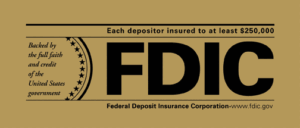Credit unions, being fiscally conservative non-profit institutions that distribute profits to their members and are less likely to engage in risky lending practices than for-profit banks with return-seeking shareholders, should surely be safer? My research proved otherwise: during the past 10 years (April 2013 to March 2023), 126 federally insured credit unions out of approximately 4,900 failed and were taken over by the U.S. government, while only 69 banks out of around 8,300 experienced this fate during that same timeframe.
As with my bank deposits, I’ve long been an enthusiastic supporter and member of various credit unions – holding significant deposits there as well. Just like with banks, my goal was to ensure my deposits at credit unions were as safe as they could possibly be. Due to rising interest rates and depositor unease resulting in several high profile bank closures in recent weeks, it’s wise to become familiar with both the FDIC basics and insurance limit amounts that impact bank deposits, as well as what NCUA policies cover credit union deposits. Bank runs aren’t only caused by industry factors; depositors could also initiate bank runs at credit unions. Are your deposits safe with them? In this article, we’ll go over NCUA basics, NCUA insurance limits (maximum deposit amounts), comparisons between the NCUA and FDIC insurance limits as well as coverage examples and much more.
What Is the NCUA? The National Credit Union Administration (NCUA) is an independent agency of the United States federal government responsible for overseeing the National Credit Union Share Insurance Fund (NCUSIF). Originally known as the Bureau of Federal Credit Unions, its predecessor organization was created during 1934 in response to financial turmoil caused by the Great Depression – eventually evolving into its present form in 1970.
Like its FDIC counterpart, NCUSIF is a federal insurance fund backed by the full faith and credit of the US government that insures deposits with federally insured credit unions instead of commercial banks or savings institutions; fully insured depositors have never lost one penny due to NCUA-insured deposits; instead of solely protecting savings with commercial banks and savings institutions, however, NCUSIF insures deposits made at federally insured credit unions, accounting for approximately 98% of credit unions nationwide; deposits at these unions as well as most state-chartered ones are all covered under NCUSIF insurance policies as well.
NCUA insurance limits will remain in place.
What Credit Unions Are NCUA Insured? As previously noted, most credit unions are NCUA insured; however, depositors should always do their due diligence when depositing money with any financial institution – but some may not be. Here is an NCUA member credit union search tool to assist depositors. As a best practice measure, always confirm if a financial institution you do business with is FDIC-NCUA or SIPC insured before handing over any of your hard-earned personal funds to them.
What Are NCUA Insurance Limits (Maximum Deposit Amounts)? The NCUA maximum deposit amounts (NCUA insurance limits or NCUA maximum deposit amounts) is set at $250,000 per share owner per insured credit union for every account ownership category – something to take a minute to digest! We’ll discuss why that’s significant later.
How Does NCUA Insurance Differ From FDIC Insurance? If the NCUA’s $250,000 per depositor/bank/owner category insurance cap seems familiar, that’s probably because the FDIC has one too: all ownership categories between NCUA and FDIC policies tend to overlap considerably – though some small distinctions do exist between their respective policies.









Hi, this is a comment.
To get started with moderating, editing, and deleting comments, please visit the Comments screen in the dashboard.
Commenter avatars come from Gravatar.